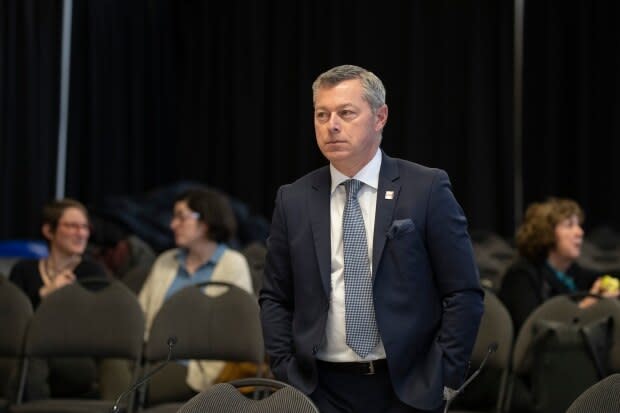'We want to be part of the solution,' Grand Prix president tells inquiry into sexual exploitation of minors
The head of Montreal's Grand Prix sought Tuesday to defend the annual auto race from charges that it drives sexual exploitation and human trafficking, while at the same time signalling he is open to seeking new measures to crack down on the problem.
"We want to play a role, and we did start to play a role," said François Dumontier after testifying before a provincial commission examining the sexual exploitation of minors.
"We want to be part of the solution."
Dumontier described the three-day event held every June in Montreal as the "most important tourism event in Canada."
He stressed, however, that the Grand Prix organization doesn't control everything that happens over the course of the event, which takes over much of downtown. Many of the events, he said, aren't organized by the Grand Prix itself.
"There's so many things going on in the city that we don't know about. We learn those events sometimes at the last minute and most of the time I would say that it's not the image that we want to the Grand Prix to have to or to receive," he said.
Still, Dumontier said he recognized the race must play a role in raising awareness among patrons and working with police to prevent sexual violence.
Before last year's Grand Prix, police asked taxi drivers and hotel workers to contact authorities if they spotted a possible case of sexual exploitation.
The program is called RADAR — a French-language acronym meaning "identify, act, denounce, help and restore."
Eve Paré, the director of the Association des hôtels du Grand Montréal, said her industry, too, is taking steps to address sexual exploitation.
Hotel staff have been instructed to look for signs of trafficking and prostitution, she told MNAs at Tuesday's hearing.
Such signs might include a young girl accompanied by a much older man, clients who insist on paying cash, and clients who repeatedly ask for their linens to be cleaned.
"It's all about training and making sure they are on alert at all times," Paré said.
Stella questions commission's aims

Groups advocating for sex workers have argued such initiatives will render sex workers more vulnerable by driving the industry further underground.
The head of Stella, a Montreal-based sex worker organization, delivered that message once again Tuesday.
Sandra Wesley, Stella's director, called into question the purpose of the commission itself and questioned what she said were the assumptions that sex workers are helpless, abused by men and unable to make their own choices.
She also said that, in her own group's experience, the vast majority of sex workers are over 18.
A preliminary report released by the commission last year cited a study that found four out of ten Quebec victims of sexual exploitation are minors.
The commission held a first round of hearings in Quebec City in November. It will next head to Val-d'Or, in the Abitibi-Témiscamingue region.

